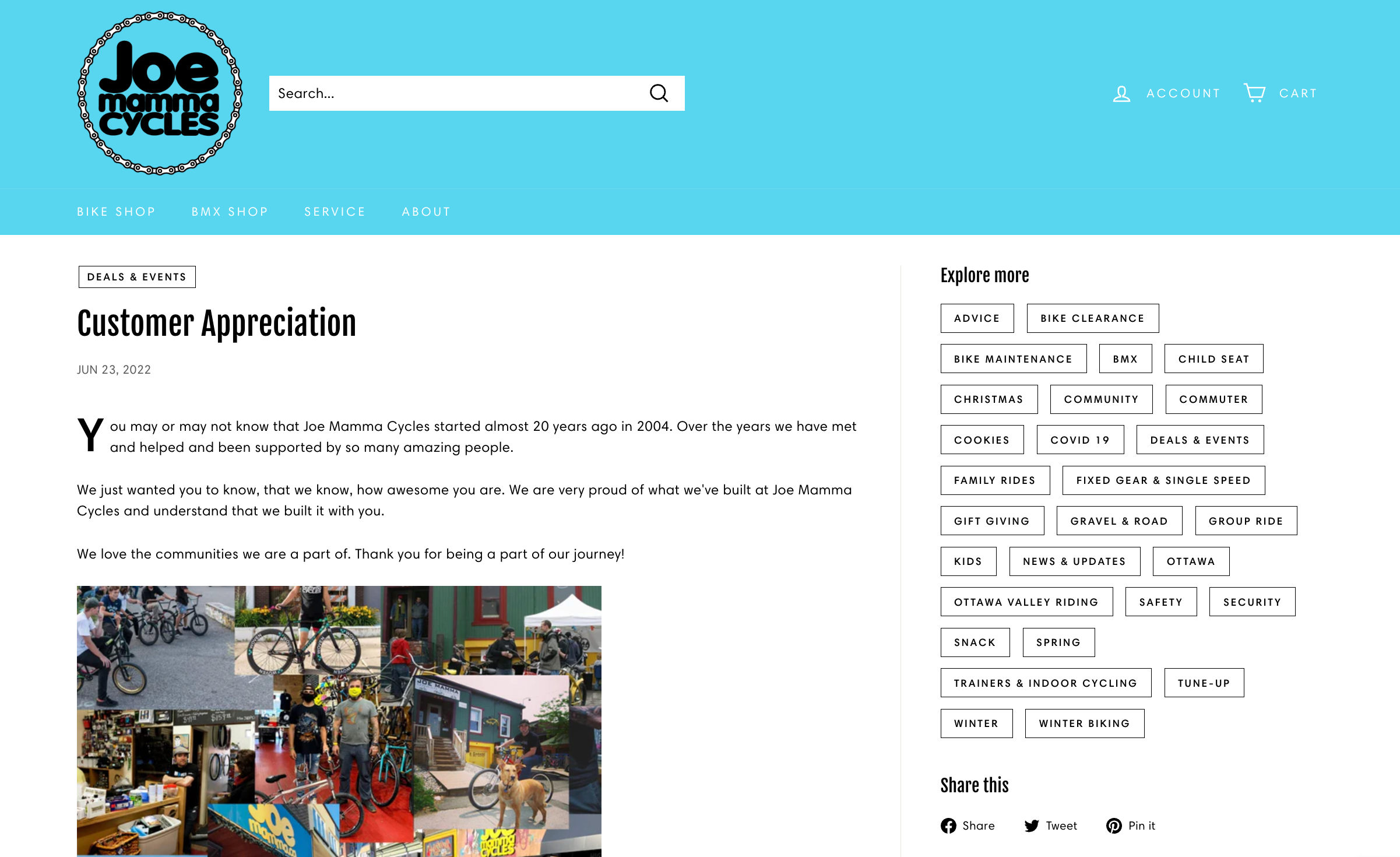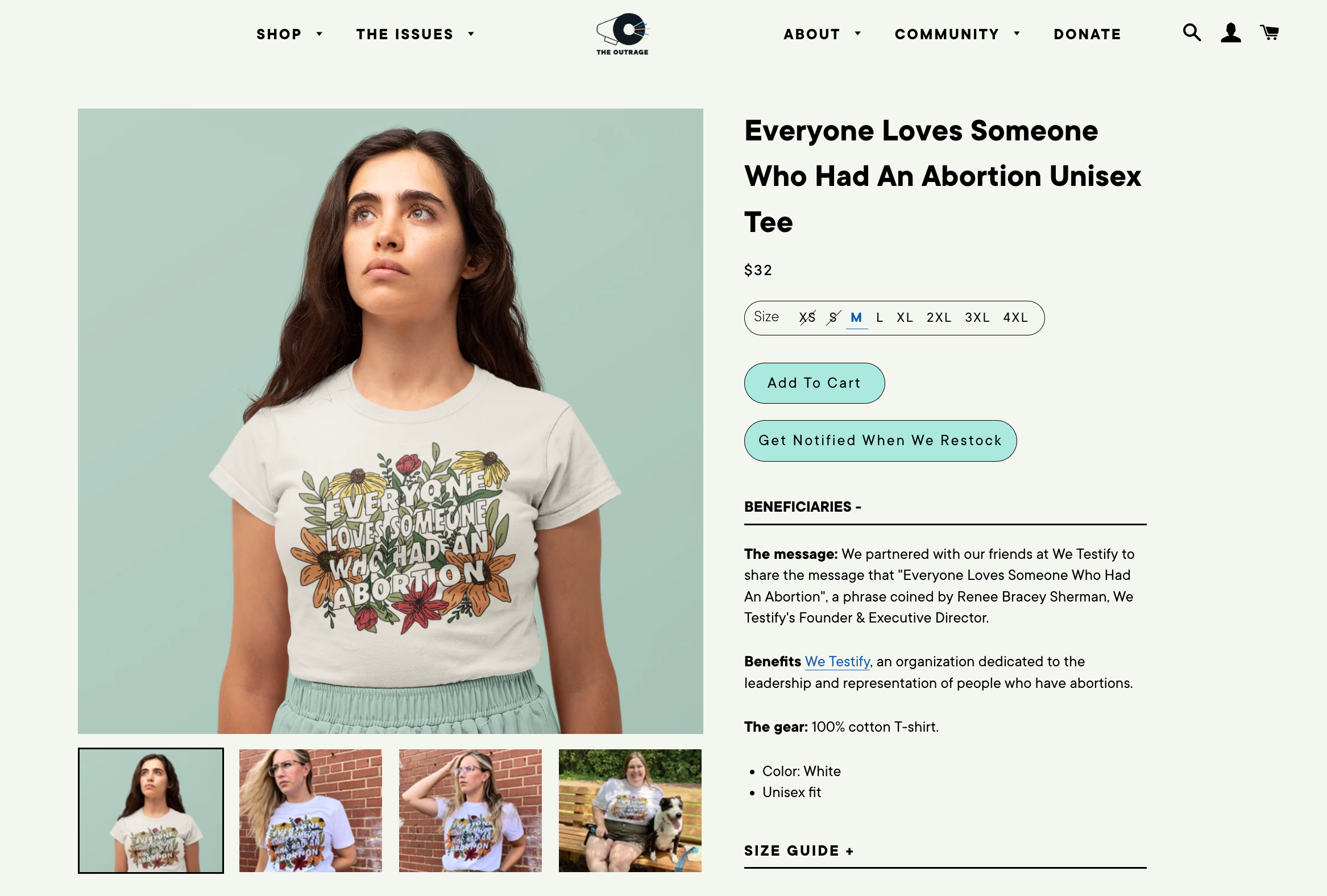More and more, consumers are demanding authenticity and social responsibility from the brands they support. Genuine kindness, community support, and surprise and delight campaigns aren’t just nice-to-haves—they’re essential to growing your business.
Random acts of kindness can show customers that you appreciate their support of your small business, building loyalty and word-of-mouth referrals.
Ahead, explore several ways businesses can practice random acts of kindness as part of an overall business strategy and learn how successful brands implement these kindness ideas every day.
What are random acts of kindness?
Random acts of kindness are gestures made by one person or group for another purely to bring pleasure, offer support, or show appreciation. These acts of kindness are generally unexpected by the recipient, and performed without motive by the giver. Some examples of random acts of kindness include leaving a surprise note for a mail carrier, bringing a warm meal to an elderly neighbor, or dropping off baked goods at the local fire station.
Acts of kindness aren’t just for family members or friends, though. Businesses can also spread kindness through small gestures—or big donations.

Why should businesses practice random acts of kindness?
Let’s be honest: most of the actions you take as a business owner are in service of making sales and growing your brand. Performing random acts of kindness “just because” may feel like a diversion from your goals.
But think of it this way: Bringing happiness to a customer’s day or showing up in your community can improve your brand’s image in the minds of the people who matter. In turn, those people are more likely to shop again and spread their experience by word of mouth. And, supporting your local community or favorite charity can strengthen your partnerships and build your network.

Random acts of kindness are especially meaningful during periods of crisis, and many businesses stepped up during the COVID-19 pandemic. Consider how your business can show up during times of economic struggle or in the aftermath of natural disasters. These are signals to potential customers that yours is a business run by real people—not a faceless corporation.
✏️ Note: Be careful to approach acts of kindness with the right tone. They should feel genuine and not explicitly tied to pushing products or another expectation—even if those good deeds ultimately do drive business.
10 ways businesses can demonstrate acts of kindness
- Add a personal touch
- Treat your loyal customers like royalty
- Create helpful and joyful content
- Pay it forward
- Donate products for fundraisers and causes
- Treat your employees well
- Support your local community
- Participate responsibly in a social cause
- Give your customers their moment to shine
- Be kind to the planet
For businesses, random acts of kindness can show up all along the customer journey, from offering new email subscribers surprise thank you discounts to highlighting customer stories on social media to reward programs for your brand’s loyal fans. These are the hallmarks of great customer service that goes above and beyond, to build long-term relationships with your audience.
Let’s put it to practice with 10 acts of kindness ideas to get you started.
1. Add a personal touch
One of the most classic random acts of kindness that businesses can implement is a personal touch. Makers popularized this concept on Etsy, with many sellers sending personalized notes or including a small gift in order packages.
Don’t miss the opportunity to make an impression with your ecommerce packaging. Little extras can be tucked in, making the unboxing experience a delightful surprise that customers are inclined to share. This can be a great way to gather user-generated content (UGC) and build social proof for your brand.
Skin care brand Journ shows its customer appreciation with a personal touch: handwritten notes in every order.

2. Treat your loyal customers like royalty
Discounts can be a great way to drive sales, and customers expect them at certain times of year. While the discount strategy baked into your overall marketing program is still important, consider using discounts as exclusive rewards, too.
You can use SMS marketing or segmented emails to surprise loyal customers with a discount, or build it into your rewards-based loyalty program.
Skin care brand Blume offers a layered loyalty program called Blumetopia that uses a points-based system to reward customers for purchases, referrals, and social shares. The most loyal can even achieve VIP program status (called “soulmates”).

Wellness brand Organic Olivia similarly rewards its customers with merch, free products, and birthday perks, with points awarded just for signing up.

Bicycle shop Joe Mamma Cycles takes a simpler approach to treating customers like gold: thanking them directly for their patronage. In a blog post on the brand’s website, Joe Mamma thanks its customers for supporting the business for 20 years.

3. Create helpful and joyful content
Content marketing is a tactic used by many brands to drive traffic, grow audiences, and make sales. But what about creating content that brightens someone’s day or brings value to someone’s experience?
That’s what apparel brand Summersalt did at the height of the pandemic. “We feel it’s as important as ever to bring some brightness into the world,” the brand announced on Instagram at the time.
Summersault launched Joycast, a free SMS-based emotional support hotline that connected those in isolation with members of their team who text back positive diversions—a meditation video, a self-care tip, or puppy GIFs. Summersalt’s Instagram also became a source of additional community support, including live virtual fitness classes with guest instructors.
Creating resources for their community united their team around a goal, according to co-founder Reshma Chattaram Chamberlin. “We are supporting each other by focusing on bringing joy to our customers,” she says.
4. Pay it forward
Aligning with a charitable partner is a smart way to generate good karma for your brand. If you don’t believe in karma, here are the facts: Sustainability is so important to Gen Z that 75% say it’s more influential than brand name when choosing a business to support.
Sustainability can mean a number of things for a business, from engaging in ethical practices to using renewable materials. But it can also refer to monetary support for social and environmental causes.
Social impact brand The Outrage was built entirely on this model, with proceeds from every purchase supporting a range of causes. These not-so-random acts of goodwill help the brand reach a target audience of socially and politically engaged young people.

Narah Soleil is a sustainability minded swimwear and apparel line that focuses on small-batch collections that use recycled and renewable materials. It makes sense for the brand, therefore, to partner with an organization aligned with its values. Narah Soliel donates to the reputable organization Rainforest Trust.
💡Tip: Set up a donation program on your ecommerce website with a Shopify app designed for this purpose.
Garments for Good 🩱 Get inspired by these brands that take a mindful approach to business to protect humans and the planet. 👉 Read: 40+ Sustainable Clothing Brands
5. Donate products for fundraisers and causes
Many charitable organizations prefer monetary donations, as they can stretch those dollars further through bulk buying and partnerships. But some in-kind donations just make sense. Find the right charitable organization that can benefit from products like yours and set up a program that consistently pays forward when you make sales.
Feminine hygiene brand Tsuno was founded in reaction to the lack of access girls in some countries have to period products. Founder Roz Campbell started the business as a social enterprise from the get-go, donating a portion of profits to girls’ education in countries like Sierra Leone and Uganda. But a product donation model made a lot of sense for the brand too.
Medical scrubs brand FIGS also practices acts of kindness through product donation. “Donating scrubs to health care providers in need is part of our DNA,” says Jenny Seyfried, FIGS VP of brand.

Through the brand’s Threads for Threads initiative, FIGS supports health care professionals year-round. During the COVID-19 crisis, the company created a dedicated application system and task force specifically to help those working on the front lines of the pandemic.
6. Treat your employees well
Treating your employees well includes paying a living wage, offering benefits, and creating a safe, flexible, and positive working environment. While these can all cost a company money, they are gestures that pay off in the long run. Happy employees equal happy customers. And retaining great staff with competitive salaries and perks can cost a lot less than turnover.
At the onset of the COVID-19 pandemic, Moo Shu Ice Cream owner Liz Mok made swift decisions to put her staff’s safety over profits. “To me, dragging out halfhearted measures will cost more than just sacrificing one week of sales,” she says. Rather than guess how to make the work environment safer, Liz closed the shop.
Liz hopes that the decision sent a clear message to her staff: "You are more important than making a sale."
Acts of kindness in business can go a long way to creating a company culture where people want to work—and customers enjoy visiting. Paid breaks, paid sick days, and guaranteed hours are standard fare at Moo Shu, right alongside the handmade ice cream, pies, and dumplings. “I’m doing literally everything that I can to make sure that working here is worth their while,” Liz says.
These acts of compassion have been positive for the business: Staff churn is low at Moo Shu with employees typically leaving only to go away for school or change industries.
Bird Rock Coffee Roasters also stepped up during the pandemic. With almost 100 employees out of work, founder Joseph Rusk says the company moved fast to set up ways to help, including cooking meals for staff.

Bird Rock even launched a Barista Relief blend coffee and a GoFundMe with all proceeds donated to its team members. “The outpouring of generosity from our customers has been amazing,” says Joseph. “Bird Rock and its customers raised several thousand dollars for our staff.”
📚 Read more: 30 Employee Recognition Ideas and Why They Matter in Retail
7. Support your local community
Small businesses are at the heart of communities, not just because they provide goods and services, but because they give back and help local economies thrive. Businesses can gain a loyal customer base by being active in their towns and neighborhoods.

In Toronto, Jennifer Fowlow from Wild North Flowers has a monthly tradition—a nomination-based flower giveaway. During the pandemic, she stepped it up, running the act of kindness campaign daily. “We had well over 100 submissions in the first 24 hours,” Jennifer says.
Wild North Flowers also had the great idea to donate pre-paid flowers from canceled events to the local community—random acts of kindness that bring joy unexpectedly. “We know purchasing flowers is a luxury many cannot afford,” says Jennifer. “The fact that we can help people bring a bit of nature indoors makes us happy and fulfilled.”

Lifestyle and apparel company Peace Collective is tied closely to the concept of home and community, especially with its local pride-based Home Is collection. It makes sense then for the brand to focus its charitable efforts close to home. One campaign provided more than 118,000 meals to a local food pantry, donated by the company with every purchase. These acts of kindness go a long way to creating strong bonds with the community.
🎧 Podcast: For more about Peace Collective, listen to the interview on Shopify Masters.
8. Participate responsibly in a social cause
When Pride events happen around the world every June, brands jump at the chance to be part of the conversation. These efforts can come across as opportunistic or disingenuous if not approached with the right tone or motive. When social movements swell or holidays like Martin Luther King Day come around, brands should be careful about positioning their efforts as acts of kindness—not sales pitches.
Maker House, a curator of handmade local goods, recognized Canada’s National Day for Truth and Reconciliation by donating a portion of the day’s profits to Indigenous organizations and 100% of profits from the sale of Orange Shirt Society clothing. This way, Maker House is amplifying awareness and turning words into action.
The brand’s social media posts for the day of recognition aren’t at odds with its typical efforts either. Maker House shows support for Indigenous artists all year round with a collection dedicated to celebrating Indigenous art.
💡Tip: If your business wants to join the conversation, do so in a way that aligns with your brand, reflects your core values, and centers the voices of the people at the heart of the issue or celebration.
9. Give your customers their moment to shine
User-generated content is valuable for brands looking to grow an audience, gain trust through real reviews, and generate sales through word-of-mouth referrals. Reward your customers for UGC with an act of kindness, like putting them in the spotlight. This is a simple but effective act of kindness that builds loyalty.
Recreation brand GILI Sports reposted a set of Instagram photos from one of its customers, not only showing its products in use by a real (and happy) customer, but also showing its gratitude for the mention.
Australian fashion brand Enthralled similarly celebrated its customer with a simple act of kindness: showcasing her look on the brand’s Instagram page.
10. Be kind to the planet
Lastly, consider the ripple effect of acts of kindness by businesses. When a brand engages in sustainable business practices, the planet benefits. But aside from reducing emissions and protecting fragile resources, these actions benefit people, too. Vulnerable communities are often the most impacted by climate change and climate disaster.
Business owners are seen as leaders in their communities and can lead by example by making business decisions that are kind to the planet. While it’s the right thing to do, it’s also good for business. Even through periods of economic downturn, consumers increasingly cite sustainability as a core value, says one report.
🧠 Get inspired: 15 Sustainable Businesses and Ideas to Inspire Your Brand in 2023
Putting kindness ideas into practice
When it comes to your business, random acts of kindness shouldn’t be, well, random. Doing good and delighting customers and staff should be baked into your business’s ethos, marketing plan, and employer brand.
In the same way a care package for an old friend can make a big difference, one act of kindness by a business can make a positive impact on a customer. The brands that do it right—that is with authenticity and transparency—stand to benefit from a kind approach to doing business.
Read more
- Paradise Found- After the Storm in Key West
- Vanguard- He Ditched a Government Job to Start a Skin-Care Line for Men of Color
- He Runs a Business—From His Bike
- Overdraft- Success for This Founder—at First—Simply Meant Surviving
- Join Shay Mitchell on Her Speed Dates with Three Female Founders
- How a One-Woman Juice Bar Became an International Brand
- My Starting Over Story- I Rebuilt My Wellness Business After it Burned in a Fire
- Outraged- T-Shirts and the 100-Year Fight for Women’s Equality
- Overcoming Adversity- 5 Founders on Surviving Their Greatest Defeats
- Suds to Stardom- How the Founder of Royalty Soaps Went Viral on YouTube
Acts of kindness in business FAQ
Why is kindness important in business?
Kindness is important in business because it helps create better relationships with staff, customers, and other businesses. Random acts of kindness can extend to all areas of the business, including manufacturing processes that are kind to people and the planet, personal touches in customer service interactions, and perks for staff appreciation. These can improve brand sentiment and attract customers to your business.
What are examples of business acts of kindness?
Some examples of random acts of kindness for business include:
- Sending thank you notes to customers
- Engaging in community service and supporting local causes
- Leaving a positive comment on a customer’s social media post
- Creating a VIP program for loyal customers
- Donating proceeds to a favorite charity
What is kindness in the workplace?
Kindness in the workplace refers to treating employees and colleagues with respect and compassion, fostering a safe and positive work environment. Random acts of kindness in the workplace can make employees feel appreciated by their employer.
What are some random acts of kindness ideas for work?
Some random acts of kindness ideas for work include:
- Monetary bonuses, benefits, and perks for employees
- Celebrating employee achievements
- Supporting staff dealing with hardship by providing extra time off.
- Offering perks and hosting events to increase employee happiness
- Recognizing the diversity of religious and cultural holidays celebrated by staff
- Creating safe spaces and funding for employee resource groups
- Acknowledging staff life milestones like birthdays and anniversaries





